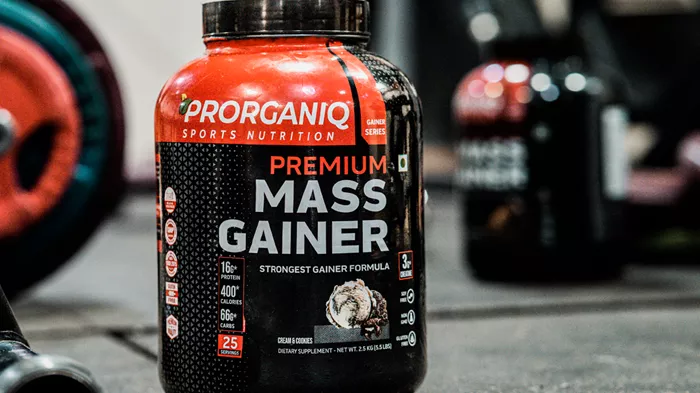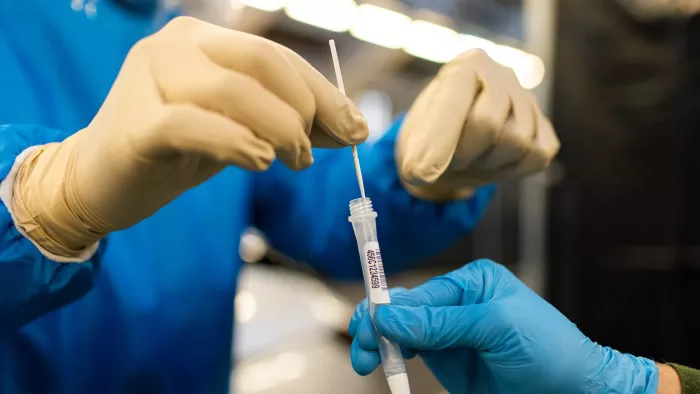Allergic reactions can range from mild to life-threatening, and the treatment options available vary depending on the severity of the reaction. While most allergic responses can be managed with over-the-counter antihistamines or other medications, more severe cases require a stronger intervention. In these instances, corticosteroids may be recommended by healthcare professionals. Why take steroids after an allergic reaction? Steroids, specifically corticosteroids, are widely used in the treatment of various inflammatory conditions, including allergic reactions. This article will explore the role of steroids in managing allergic reactions, why they are prescribed, their benefits, and potential risks.
What Are Allergic Reactions?
An allergic reaction occurs when the immune system mistakenly identifies a harmless substance, such as pollen, pet dander, or a specific food, as a threat. In response, the immune system releases chemicals like histamine to defend the body. This leads to symptoms such as itching, hives, swelling, difficulty breathing, or in severe cases, anaphylaxis. The severity of the allergic response varies depending on the individual and the nature of the allergen.
Types of Allergic Reactions
Allergic reactions can be classified into several categories:
- Immediate Reactions: These typically occur within minutes of exposure to the allergen. Common symptoms include swelling, redness, itching, and difficulty breathing.
- Delayed Reactions: These reactions occur hours or even days after exposure and can be more challenging to treat.
- Anaphylaxis: A severe, life-threatening allergic reaction that requires immediate medical attention. Symptoms include difficulty breathing, a drop in blood pressure, and swelling of the throat.
The Role of Steroids in Allergic Reactions
Corticosteroids, commonly referred to simply as steroids, are synthetic versions of cortisol, a hormone naturally produced by the adrenal glands. They work by suppressing the immune system’s inflammatory response, reducing swelling, and controlling other symptoms of an allergic reaction.
Steroids are often prescribed when symptoms are not adequately controlled by antihistamines or other medications. For instance, when someone has a severe allergic reaction or when an allergy triggers chronic inflammation, such as in the case of asthma or allergic rhinitis, corticosteroids help bring the immune system back into balance.
Why Are Steroids Recommended After Allergic Reactions?
Steroids are typically prescribed after an allergic reaction when the symptoms are particularly intense or when the reaction could lead to further complications. Here are several reasons why steroids may be used after an allergic reaction:
1. Reducing Inflammation
One of the primary reasons for using steroids is their ability to reduce inflammation. In allergic reactions, the body releases inflammatory substances that can cause swelling and irritation. By reducing inflammation, corticosteroids help manage these symptoms, preventing further complications like blocked airways or severe skin reactions.
2. Treating Chronic Allergic Conditions
For individuals with chronic allergic conditions, such as allergic rhinitis (hay fever) or asthma, steroids are often used to manage long-term inflammation. This reduces the likelihood of repeated allergic reactions and helps individuals manage their symptoms more effectively. Steroids can be taken in pill form, inhaled, or applied topically depending on the condition being treated.
3. Preventing Anaphylaxis or Severe Reactions
In some cases, an allergic reaction may lead to anaphylaxis—a life-threatening condition that causes difficulty breathing and a drop in blood pressure. Steroids, in combination with other medications like epinephrine, can help prevent or treat severe allergic reactions by stabilizing the immune system and reducing the risk of anaphylaxis.
4. Long-Lasting Effects
Unlike antihistamines, which generally only provide temporary relief, corticosteroids have a longer-lasting effect on inflammation. This can be particularly helpful for individuals with severe allergies or those who are prone to frequent allergic reactions. By managing inflammation effectively, steroids can help keep allergic reactions under control over a longer period of time.
5. Treating Skin Reactions
Many people experience skin-related allergic reactions such as rashes, hives, or eczema. Topical corticosteroids are often used to treat these conditions by reducing inflammation and relieving itching. In more severe cases, oral or injectable steroids may be prescribed to manage widespread or persistent skin reactions.
Different Forms of Steroids Used for Allergies
Corticosteroids come in several different forms, each tailored to the type of allergic reaction being treated. The most common forms include:
Oral Steroids: Prednisone is one of the most commonly prescribed oral steroids for allergic reactions. It works systemically to reduce inflammation throughout the body. Oral steroids are typically prescribed for more severe or widespread reactions.
Topical Steroids: These are applied directly to the skin and are used for conditions such as rashes, eczema, or contact dermatitis. They are available in various strengths, with stronger formulations typically reserved for more severe reactions.
Inhaled Steroids: For individuals with asthma or allergic rhinitis, inhaled corticosteroids can be used to reduce inflammation in the airways. These steroids help control swelling in the nasal passages and lungs, improving breathing and reducing asthma attacks or nasal congestion.
Injectable Steroids: In more severe cases, injectable corticosteroids may be administered. These provide quick relief from inflammation and are often used in emergency settings, especially when oral medications are not effective or the reaction is life-threatening.
Benefits of Steroid Use After Allergic Reactions
Steroids offer several benefits when used after an allergic reaction:
Effective Symptom Control: Steroids can effectively control symptoms like swelling, redness, and itching, making them a reliable option for managing allergic reactions.
Reduced Risk of Complications: By controlling inflammation, steroids reduce the risk of complications like airway obstruction, which can be particularly dangerous for individuals with respiratory allergies or asthma.
Long-Term Relief: For chronic allergic conditions, corticosteroids can provide long-term relief, preventing recurrent symptoms and improving the quality of life for patients.
Potential Risks of Steroid Use
While steroids are highly effective in managing allergic reactions, they come with potential risks, especially when used long-term or at high doses. Some of the potential risks include:
1. Suppressed Immune System
Corticosteroids can suppress the immune system, making the body more susceptible to infections. This is particularly concerning for individuals who are already prone to frequent infections or who have other health conditions that compromise the immune system.
2. Weight Gain and Fluid Retention
Steroids can lead to weight gain and fluid retention, particularly when used over extended periods. This can result in uncomfortable symptoms like bloating, as well as potential long-term health issues such as high blood pressure.
3. Bone Density Loss
Long-term use of corticosteroids can lead to a decrease in bone density, increasing the risk of osteoporosis and fractures. This is why doctors generally aim to limit steroid use to the shortest duration possible and may recommend bone-strengthening medications for long-term users.
4. Skin Thinning and Bruising
Topical steroids, when used for extended periods, can cause thinning of the skin, making it more susceptible to bruising and tearing. This is why it is important to follow medical instructions when using these treatments.
5. Hormonal Imbalances
Because corticosteroids mimic the body’s natural hormones, long-term use can disrupt the balance of these hormones. This may result in symptoms like mood swings, weight gain, and difficulty sleeping. In some cases, steroid use can even lead to adrenal insufficiency, where the body is unable to produce enough natural cortisol.
When Should Steroids Be Taken After an Allergic Reaction?
Steroids are typically reserved for severe allergic reactions or those that involve chronic inflammation. They should be used under the guidance of a healthcare professional, as they are not appropriate for every allergic reaction. If you have a history of allergies and find that your symptoms are not responding to over-the-counter medications, consult your doctor to determine whether steroids may be necessary.
In cases of anaphylaxis or an immediate allergic reaction, steroids may be given after emergency treatments like epinephrine have been administered. For ongoing or recurring allergic conditions, your healthcare provider may recommend a steroid regimen as part of your long-term treatment plan.
Conclusion
Steroids are an important tool in the management of allergic reactions, particularly when symptoms are severe or chronic. They help reduce inflammation, prevent complications, and provide long-term relief for many individuals. However, like all medications, they come with potential risks, particularly when used for extended periods. If you are prescribed steroids after an allergic reaction, it is crucial to follow your healthcare provider’s instructions closely to minimize side effects while maximizing the benefits. Always consult with a doctor before starting or discontinuing any steroid treatment, and work together to develop a plan that best suits your health needs.
Related Topics
What Are The Main Causes of Bipolar Disorder?

































